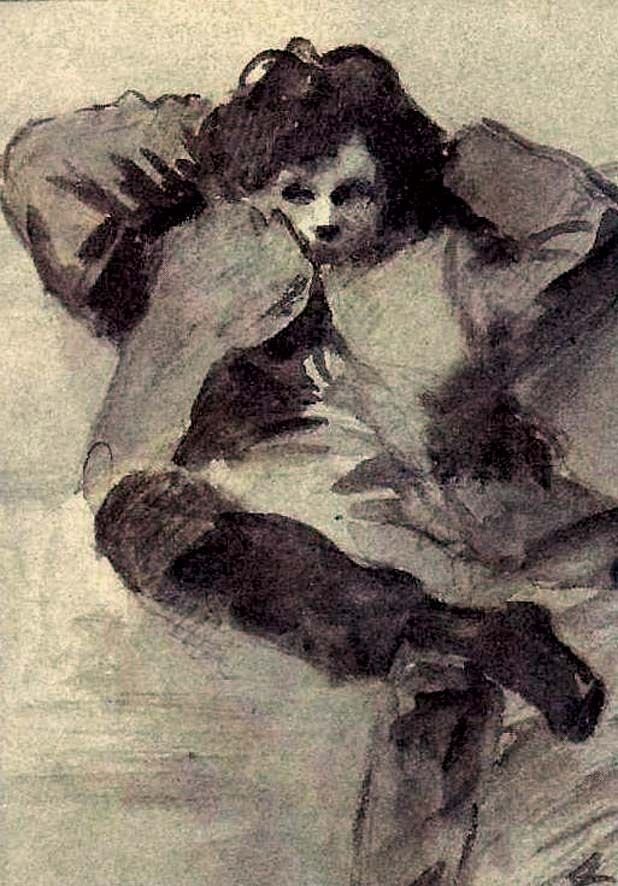Arthur Rimbaud and his poetry /part 4/
These few phrases, written by a seventeen-year-old boy, are among the most famous in French literature. Nevertheless, the poetic art that they are suggesting is not easily attainable: the denial of subjective poetry is not only a denial of the sentimental, lyrical, romantic style of "Muse", poetry, as it closes man in empty-edged conventions; it is also a rejection of the subordination of some class, god, or personality poetry: on Descartes's wording "I think I am," I must oppose the finding that the poet is not a producer but a product of its production. "I am someone else," says Rimbaud. Thus the poet is deprived of his identity and his freedom. In the second letter to Paul Demmen, written on May 15, the young poet sets out his intuitive insights. In it he portrays his poem "The Paris War Song" as a "Psalm for the Present". Still, Rimbaud says, "I'm bringing you a prose about the future of poetry," and leaps over old poetry ideas, strongly denies the lyrical clichés of Romanticism to Ego and the broken connection between the poet and the city. In this manifesto, clairvoyance ensures the success of the poet, and complete disruption of the senses becomes a major means of anticipating the future.
It is not so important that the price the poet must pay is too high. What is important is that at the end of this terribly difficult undertaking the highest knowledge is attained. Although he is a sufferer declared to be a criminal and cursed, the poet builds himself up as a "thief of fire" and accepts to plunge into the unknown - "down there" - to bring out the hidden form of consciousness to form or formless. Rimbaud 's poetic program turns out to be truly revolutionary: choices should be made to the common sense logic. One of the formulas followed by the poet by Charles de Gaulle in his poems reads: to penetrate into the literal sense and its meaning in all directions. The notion that the language that already exists and imitates reality must be abandoned and the use of intoxicating speech is to be imagined. Poetry must incorporate in itself all excessive and imagined exposure to dangers. In his lifetime, Rimbaud is shouting his hatred, his disagreements, his riots against the established social order, the closed family environment, the restrictive social conventions against Napoleon III, and Catholicism. He deafened his "otherness" by writing. And then he went away. His true arguments, which nobody knows, do not matter. The fact that his "African adventure" fails in a ridiculous way is also not important. What is important, which distinguishes him from the "others", is the complete rupture of the tradition, the refusal of his writing career and his determined desire to clear his memory from every trace of poetry: "This is no longer my concern," he said despised , when he was talking about poetry and about his work, which he simply considered "sloppy".
Carrying the excitement of the adolescent in the world, the lyrical expression in Rimbaud 's poetry ceases to be perceived as a personal confession and becomes a daring adventure of language. Language is cleansed and remains clear, even when the thought thickens and the point escapes. The selection of words that makes Rimbaud is always excellent, sometimes consciously pedantic. In the construction of verses he rarely uses artificial techniques. Few are the arbitrary censors in them, and even more rare are artificial transfers. Still, the German romantic August Schlegel presents the scale of the correlations between the vowels and the perceptions of them so: for it A corresponds to the red color and is the expression of youth, joy and glamor, O is the color of purple and meaning nobility, magnificence and sun .n. According to Novalis, the voices express the vague feelings, and the consonants - certain experiences. Ernst Junge in his study The Vocal Appearance, describing the vocal sounds, views "A" as a "moral symbol" as the mother of all vowels as a king of the letters, and therefore in all alphabets he takes first place ... " A "is a" royal sign "and is an expression of" parental authority, "and therefore Junge proposes to choose a purple color instead of black, as in Rimbaud . It is supposed that the Voice of the Sonnet is written under the influence of a scientific article dedicated to color hearing. It is also assumed that Rimbaud recalled the "colorful alphabet" he had learned to read: the voices were colored in the same colors as in his verses; the letters were illustrated with drawings of animals or objects whose name began with the letters you used to use Rimbaud in this sonnet. Others, like the poet's close friend, see in the Voices just a fun, poetic play.
